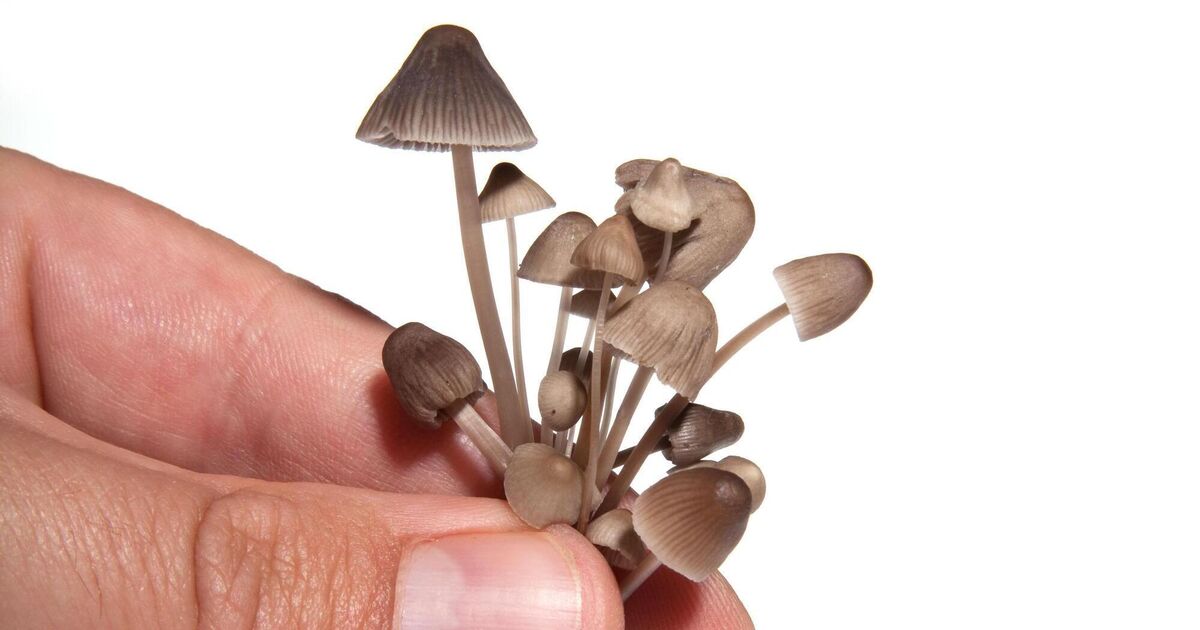Medical science today is rediscovering the potential of psychedelic drugs to offer effective treatments for some of the world’s most painful and costly mental health conditions, including PTSD, OCD, depression, anxiety, and addiction.
This global renaissance of serious scientific interest in psychedelics began cautiously in the 1990s and is now in full swing: Over the last five years, a steady stream of psychedelic medicines have been approved for use in Ireland, the UK, the US, and Australia, among other countries, and this trend looks set to continue.
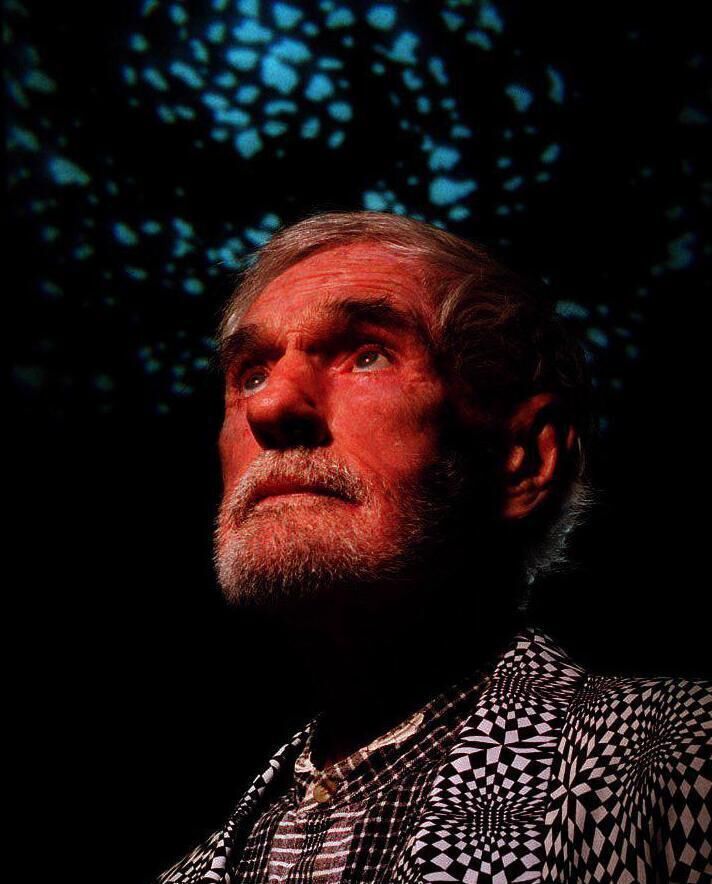 Timothy Leary at his home in Beverly Hills in 1995. The psychologist became a 1960s counterculture hero due to his advocacy of psychedelic drugs but was described by US president Richard Nixon as ‘the most dangerous man in America’. File picture: Mark J Terrill/AP
Timothy Leary at his home in Beverly Hills in 1995. The psychologist became a 1960s counterculture hero due to his advocacy of psychedelic drugs but was described by US president Richard Nixon as ‘the most dangerous man in America’. File picture: Mark J Terrill/AP
This is a ‘renaissance’ or resurgence because, at an earlier stage, in the 1950s and ’60s, psychedelic drugs were widely believed to be the future of psychiatry: LSD and psilocybin (one of the psychoactive ingredients in ‘magic mushrooms’) were the focus of experiments written up in thousands of scientific papers.
So remarkable were the life-changing curative effects of these psychedelics that they quickly escaped medical and research settings to become a mainstay of the counterculture, fuelling resistance to the Vietnam War.
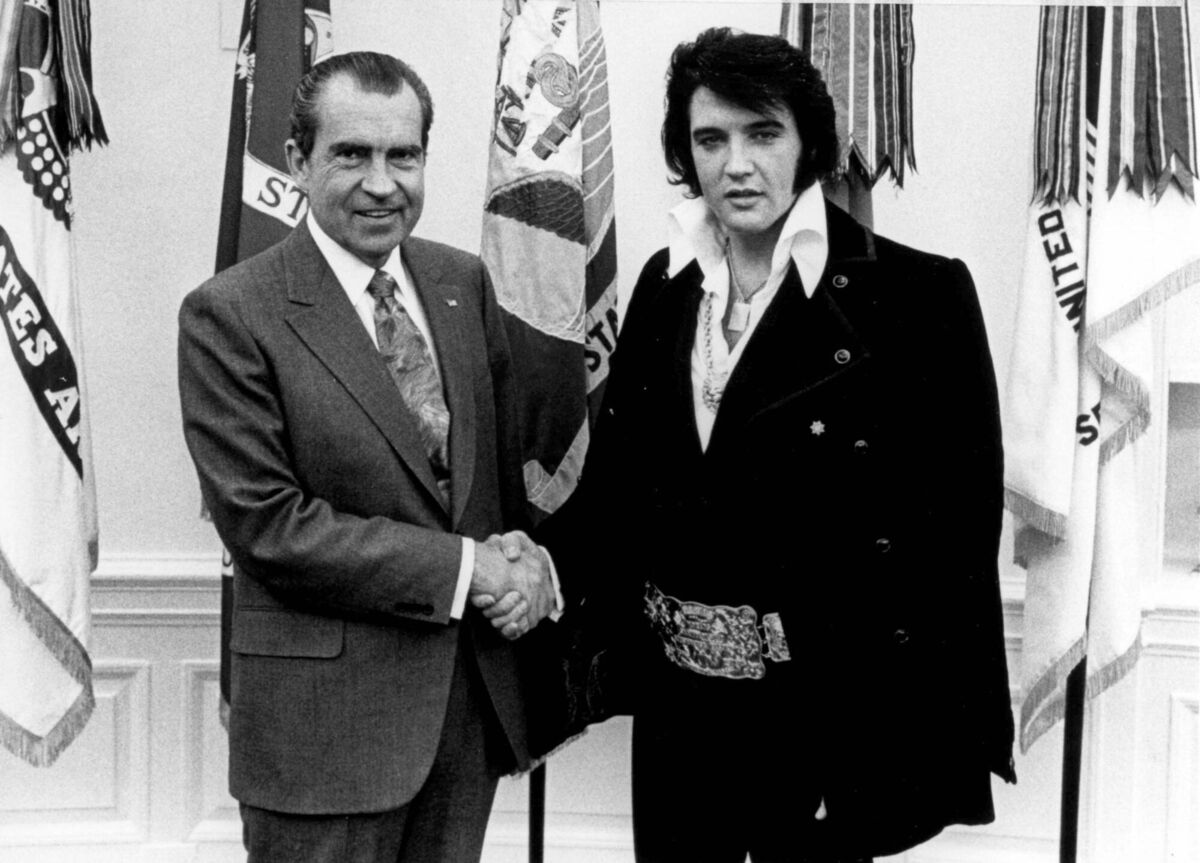 Then US president Richard Nixon meeting Elvis Presley in the Oval Office on December 21, 1970, when Elvis was presented with a Bureau of Narcotics and Dangerous Drugs badge. Nixon had coined the term ‘war on drugs’ in a speech six months earlier. Picture: US National Archives
Then US president Richard Nixon meeting Elvis Presley in the Oval Office on December 21, 1970, when Elvis was presented with a Bureau of Narcotics and Dangerous Drugs badge. Nixon had coined the term ‘war on drugs’ in a speech six months earlier. Picture: US National Archives
Timothy Leary’s infamous invitation to the youth of America to ‘Turn on, tune in, drop out’ — to take LSD and detach themselves from social imperatives to conform, wage war, and make money — struck then US president Richard Nixon as such an alarming affront to the Protestant work ethic and such a danger to the murderous ambitions of US militarism abroad that he launched the ‘war on drugs’ at the turn of the 1970s, insisting the whole world follow suit by outlawing psychedelics, by cutting off funding for scientific research, and by devising propaganda campaigns which misrepresented the dangers of these drugs.
While this continues to shape social attitudes to psychedelics and other drugs, the tide is turning.
In Ireland new biomedical research on psychedelics is underway at Trinity College Dublin and at University College Cork, while public attitudes seem gradually to be deviating from the punitive and prohibitionist course set by Nixon over half a century ago.
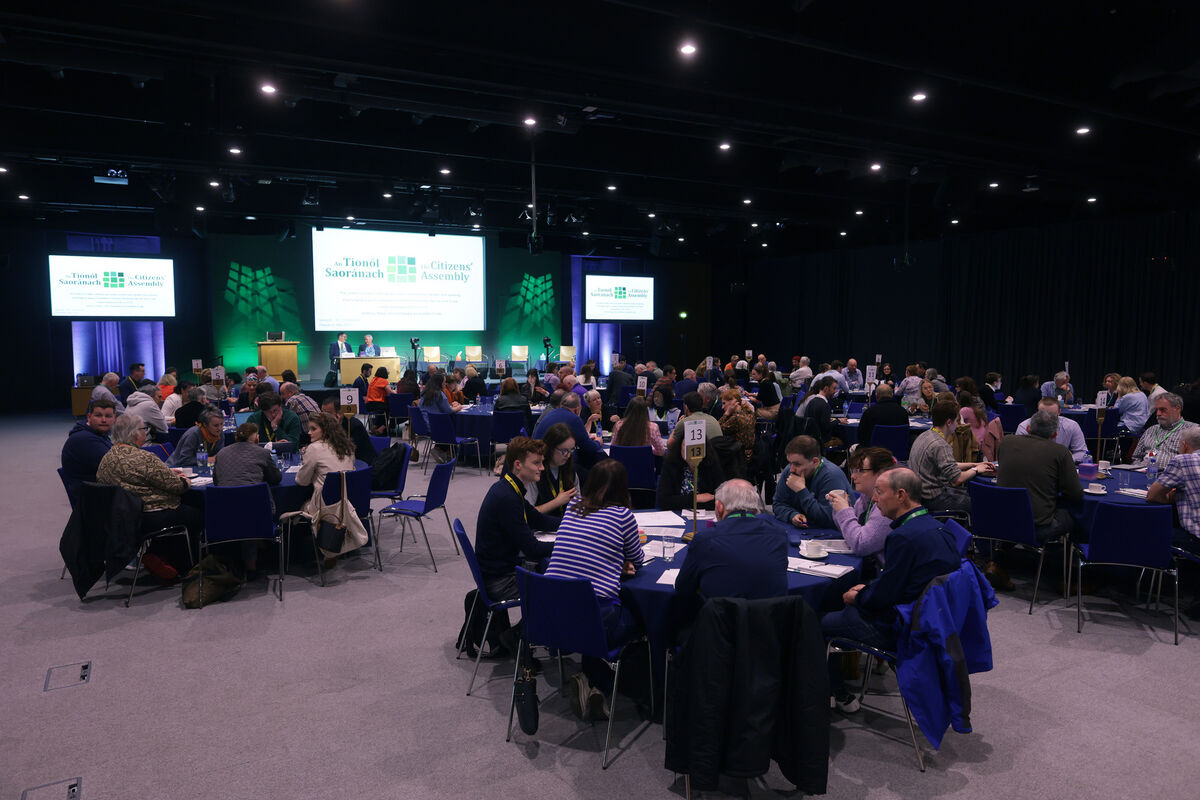 An early meeting of the Citizens’ Assembly on Drugs Use in May 2023. Ultimately, the assembly recommended ‘a comprehensive health-led response to drugs use’. Its full report is available at the foot of this article. Picture: Maxwells
An early meeting of the Citizens’ Assembly on Drugs Use in May 2023. Ultimately, the assembly recommended ‘a comprehensive health-led response to drugs use’. Its full report is available at the foot of this article. Picture: Maxwells
The Citizens’ Assembly on Drugs Use, established in 2023 by the Oireachtas, recommended that ‘the State pivots to a comprehensive health-led response to drugs use’ and received numerous submissions on the health benefits of psychedelics.
Although the assembly’s recommendations have yet to be given legislative effect, we are also fortunate that there is now a groundswell of curiosity about traditions of psychedelic use on this island which long pre-dates both medical interest in these substances and their prohibition.
We held a research day at UCC on March 24 to explore those traditions from the perspective of the humanities.
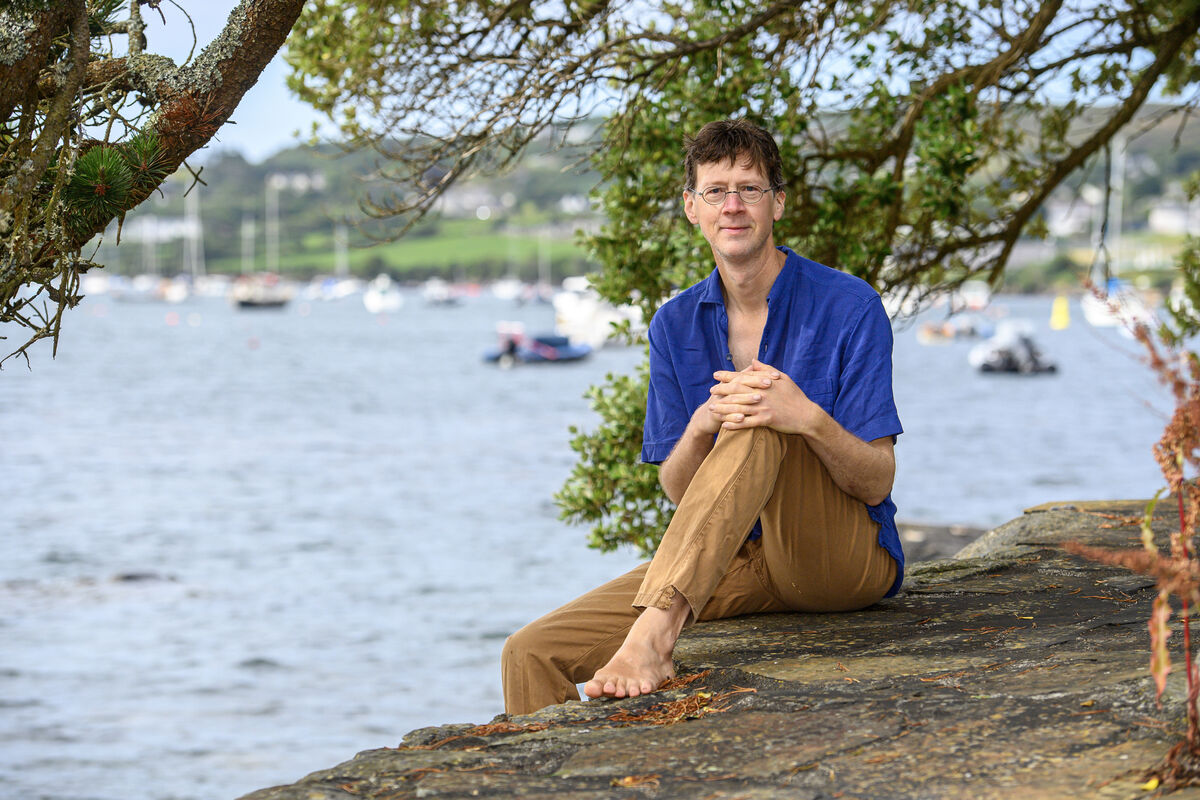 Manchán Magan delivered his celebrated talk, Rewilding the Mind, during the research day at UCC. Picture: Dan Linehan
Manchán Magan delivered his celebrated talk, Rewilding the Mind, during the research day at UCC. Picture: Dan Linehan
Land, language, and culture were prominent concerns of the day: Irish culture scholar Dáithí Ó hÓgáin suggested that the legendary warrior of medieval Irish epic, Cú Chulainn, and fighters following in his footsteps, used the fly agaric mushroom to induce the riastradh — twisting battle spasms allowing them to fight enemies on all sides at once.
In his lyrical celebration of the Irish language, Thirty-Two Worlds for Field, Manchán Magan wonders about the wider role psychedelic mushrooms may have played in the development of a culture which honoured the land, as of the language which resonated with it, as well as in the prominence and proximity of ‘the Otherworld’ in Irish folklore.
Manchán attended the research day and delivered his celebrated talk, Rewilding the Mind.
Liberty cap and fly agaric mushrooms grow widely on this island and are believed by many to have a long history of spiritual, cultural, and therapeutic use dating back to the Neolithic period.
It is thought this tradition of usage was disrupted by colonisation and much of the evidence for it destroyed or disguised. In Ireland, the liberty cap is now being used by some as a plant medicine for personal healing and cultural revival.
 Ancient Irish demigod Setanta / Cú Chulainn has been reimagined innumerable times including, in this instance, by Cork comic book artist Will Sliney.
Ancient Irish demigod Setanta / Cú Chulainn has been reimagined innumerable times including, in this instance, by Cork comic book artist Will Sliney.
In Canada, the use of indigenous plant medicines for “post-colonial healing” — as medical anthropologist Joseph Calabrese calls it — is relatively well established.
Since its establishment in the late 19th century, the Native American Church has provided institutional and ritual context for the indigenous stewardship of the peyote cactus, which contains the psychedelic drug mescaline, and which has successfully been used in the treatment of alcoholism and other pervasive symptoms of intergenerational trauma.
Two prominent elders from the Native American Church in Canada, including its former president of 18 years, Kelly Daniels, spoke and sung at the research day, together with internationally leading historian of psychedelics, University of Saskatchewan professor Erika Dyck.
In dialogue with speakers from Ireland, they discussed ways in which indigenous traditions are broken and reconstructed.
 Psilocybin and other psychoactive ingredients in ‘magic mushrooms’ are being investigated for potential medicinal use. Picture: iStock
Psilocybin and other psychoactive ingredients in ‘magic mushrooms’ are being investigated for potential medicinal use. Picture: iStock
The day laid the foundations of a home for ‘the psychedelic humanities’ in Ireland, here at UCC, and explored the resurgent curiosity about the cultural significance of these substances which has accompanied recent advances in biomedical research.
• Oliver Davis is professor of French at University College Cork and former co-editor of the Frontiers in Psychology series in the psychedelic humanities.
• This article does not contain any medical advice. If you have queries about matters such as the use of psychedelic drugs, ask your doctor first.
• The report of the Citizens’ Assembly on Drugs Use is available on the CitizensAssembly.ie website.
